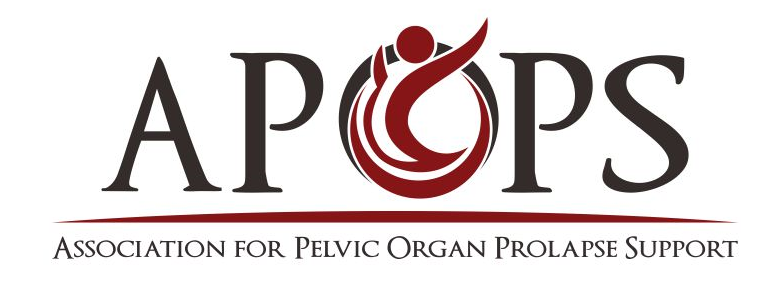As in every other field of practice, healthcare has practitioners whose skillset ranges between exceptional, good, bad, indifferent, to “they deserve to lose their license”. As patients, we understandably tend to focus on our needs, with little thought given the issues that impact how our clinicians do their work. Patients can be quite judgmental at times. Certainly, we all want quality healthcare.
Read moreFDA 2019 Transvaginal Mesh Meeting: Balancing the Rhetoric →
Following is a transcript of the speech given by Sherrie Palm at the FDA Obstetrics and Gynecology Devices Panel transvaginal mesh meeting on February 12, 2019.
I’m Sherrie Palm, the founder of the Association for Pelvic Organ Prolapse Support (APOPS). Neither me nor APOPS has any financial conflicts of interest. In full disclosure, I am a transvaginal mesh success story, 11 years post transvaginal mesh cystocele and rectocele repair, and native tissue enterocele repair.
Pelvic organ prolapse is not an American women’s health issue, it is a global women’s health pandemic. Since 2010, APOPS has been engaging with women, healthcare, academia, research, industry and policy, a 177 nation strong network. The women we serve are mid-teens through end of life, navigating every diverse POP issue, including the mesh vs native tissue debate. APOPS has considerable following in the UK and Australia; obviously mesh comes up regularly.”
Read moreThe Next Evolution of Women's Wellness SCREENING: Pelvic Organ Prolapse
Research frequently estimates that 1 in 2 women will experience pelvic organ prolapse (POP). There has been considerable media exposure related to mesh complications, associated litigation, and FDA commentary. What has yet to surface is the substantial gap in women’s wellness screening related to POP, a common but highly closeted condition. A collaborative effort to address a massive gap in women’s wellness protocol is underway.
Childbirth and menopause, 2 of the most significant life events women experience, are the leading causes of pelvic organ prolapse. Pelvic exams are considered the gold standard in female wellness protocol, but women are seldom informed of or effectively screened for POP during their routine pelvic exams.
Read moreVaginal Tissue Rejuvenation to Treat Pelvic Organ Prolapse Symptoms: FDA Media Blitz, Fear vs Fact
I wouldn’t see an aesthetician or dermatologist to provide a vaginal treatment, and I wouldn’t see a gynecologist to fix wrinkles on my face. Call me crazy. I prefer my parts remain fully optimized and relatively functional. Walking the walk of a pelvic organ prolapse (POP) patient advocate, I get to see, touch, and explore a multitude of treatments and tools utilized to treat this condition, and that includes some that have made me wonder what…were….they….thinking? But I’ve also seen a couple over the years that have made me sit right up in my chair and immediately go down the Google rabbit hole to capture more data. Energy based vaginal tissue regeneration (VTR) is a nonsurgical treatment I’ve had my eyes on for years.
Read moreIs Chronic Constipation Your Daily Companion? Rectocele, Rectal Prolapse, Enterocele, AND Intussusception
Rectocele, rectal prolapse, enterocele, intussusception, what’s the distinction? Women often think rectocele and rectal prolapse are the same thing. They are not. Enterocele is sometimes undiagnosed when other types of POP are recognized. Intussusception is little known outside of those diagnosed with it.Articles about pelvic organ prolapse are incredibly vague when it comes to the difference between these conditions, and rarely mention rectal prolapse or intussusception at all. Let’s shine a bit of light to clarify these upper and lower bowel conditions.
Read moreThe Evolution of Treatment for Uterine Prolapse
Global, systemic evolution of research and treatments related to pelvic organ prolapse (POP) are not a maybe, they are a must, considering up to 50% of women are estimated to experience this condition. The needs of women vary based on type(s) of POP and country of residence. There is significant prevalence of uterine prolapse, both in developed zones such as the US, UK, Europe and Australia, as well as in developing zones such as Nepal, India, and Africa. While we ponder the numerous quality of life issues women experiencing POP navigate, the women in developing zones have additional struggles to overcome, such as little access to adequate healthcare or qualified surgeons. A new medical device, NeuGuide, may provide solutions for the women navigating uterine prolapse in developing and developed zones alike.
Read more
